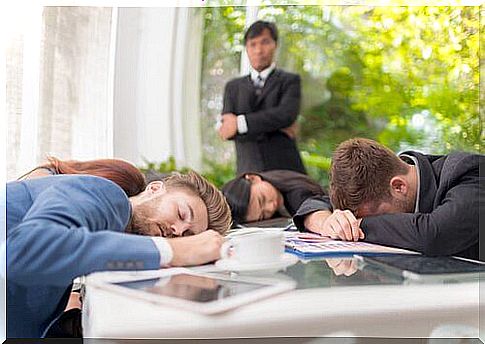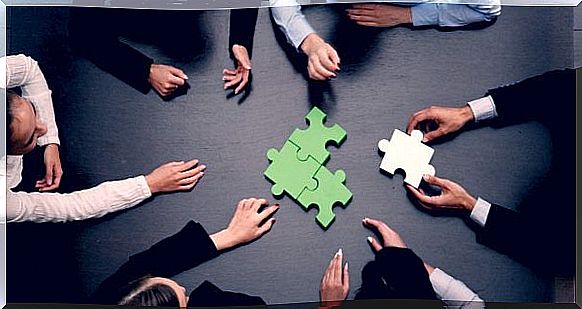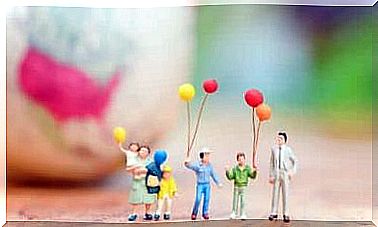Social Laziness And How To Avoid It

Inactivity is one of the evils of our time. Laziness, lack of desire to work, too much free time… Something strange often happens when we work in a group – the whole is less than the sum of the parts. What each person contributes is less when they are in a group. This is known as social laziness.
Social laziness is when we make less effort in a group task when it is probably not noticed, than when the same task is performed alone. The experience of working in a group can lead to people making less effort with lower performance. Some of the reasons for this are lack of motivation and problems with organization and coordination. Let’s examine this in a little more detail.
The beginning of laziness
In 1880, agricultural engineer Max Ringelmann was the first to study social laziness. Ringelmann selected 14 people to pull a load and he registered the force that each of them exercised. He also got the same people to pull the load individually. The results showed that when people pulled the load alone, they were stronger than when they were together.
Although Ringelmann attributed this loss of effort to poor coordination, later studies discovered other causes. In a study where participants had to applaud and shout as loud as possible, it was found that the sound level of each person was reduced the larger the group they were in was. With this , they concluded that many people prefer to hide in the crowd.

To be as lazy as others
People do not worry about having a lower performance in a group when their individual contribution is not identifiable. When people can not be blamed for not trying as hard as possible, they tend to put less effort than they really can. But social laziness does not only depend on whether we can identify contributions from each individual person.
Equity and social comparison are factors that also intervene. The fact that one person in the group is doing less will cause other people to end up doing the same thing. On the other hand, comparing each person’s performance with that of others creates a sense of pressure to do more than you can actually do, physically.
Mental laziness
Social laziness does not only occur when you perform tasks that require physical effort. It also happens in cognitive tasks, especially when we have to think. For example, in a brainstorming session. The larger the group, the more number of ideas each person contributes to will be reduced. The same as with the physical tasks. Doing mental tasks can also lead to laziness when working in areas where equity and social comparison abound.
One area where social laziness happens very often is in teams at work. When we have to work as a group, we often do not make much effort, and the same applies to all members. But if there are good coordinators who can assign tasks well, it is often the case that the worker gives everything they have. When one or more people give their all, others will often follow their example. There are others whose reaction to this is to do as little as possible.

The importance of fighting laziness
A major influence in all of this is the type of task that the worker performs. Social laziness occurs less frequently when the tasks are interesting. In addition, when the level of addiction is high, laziness is reduced. If every single task is necessary for a successful outcome, there will be less laziness due to the social pressure to achieve success.
Therefore , social laziness does not always occur when you work in a group. Some ways to avoid it, or at least reduce it, are the following:
- Make the efforts of each person identifiable.
- Increase your commitment towards the successful completion of the task.
- Provide the opportunity to evaluate individual contributions and the group as a whole.
If we have to perform a group task, it is important that all group members have a high level of motivation. If not, we can at least try to assess the performance of each person and communicate the significance of the ultimate goal. Good work management in groups will ensure that each member will value their work and their colleagues.









